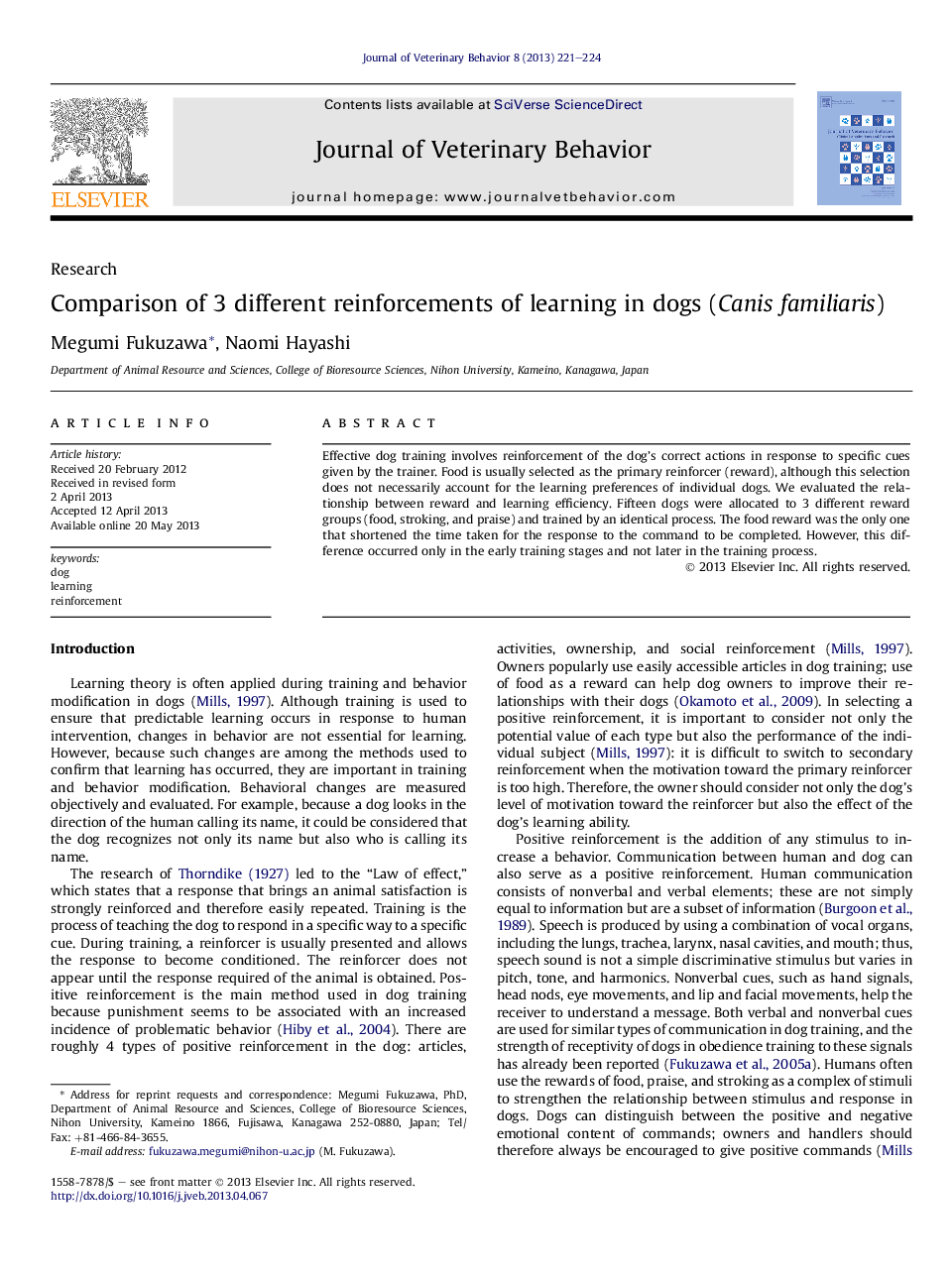| Article ID | Journal | Published Year | Pages | File Type |
|---|---|---|---|---|
| 2398916 | Journal of Veterinary Behavior: Clinical Applications and Research | 2013 | 4 Pages |
Abstract
Effective dog training involves reinforcement of the dog's correct actions in response to specific cues given by the trainer. Food is usually selected as the primary reinforcer (reward), although this selection does not necessarily account for the learning preferences of individual dogs. We evaluated the relationship between reward and learning efficiency. Fifteen dogs were allocated to 3 different reward groups (food, stroking, and praise) and trained by an identical process. The food reward was the only one that shortened the time taken for the response to the command to be completed. However, this difference occurred only in the early training stages and not later in the training process.
Keywords
Related Topics
Life Sciences
Agricultural and Biological Sciences
Animal Science and Zoology
Authors
Megumi Fukuzawa, Naomi Hayashi,
